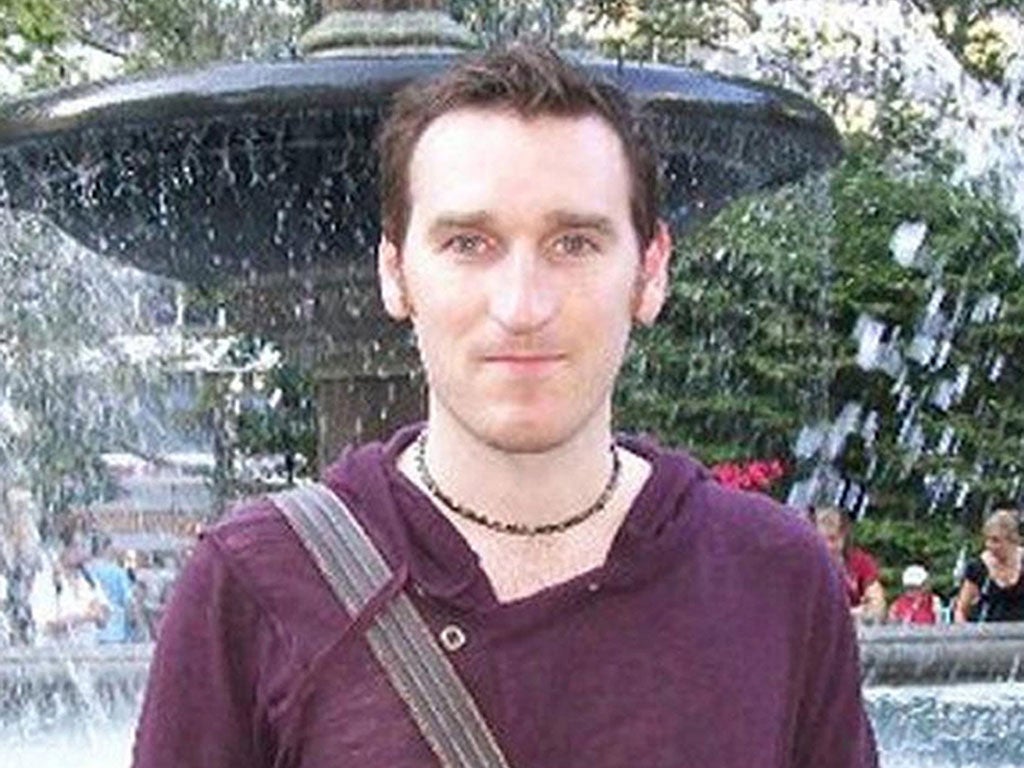Jihadists murdered Briton as he took refuge in toilet, inquest told
Construction worker was shot six times as British and Nigerian troops tried to free him, court hears

Your support helps us to tell the story
From reproductive rights to climate change to Big Tech, The Independent is on the ground when the story is developing. Whether it's investigating the financials of Elon Musk's pro-Trump PAC or producing our latest documentary, 'The A Word', which shines a light on the American women fighting for reproductive rights, we know how important it is to parse out the facts from the messaging.
At such a critical moment in US history, we need reporters on the ground. Your donation allows us to keep sending journalists to speak to both sides of the story.
The Independent is trusted by Americans across the entire political spectrum. And unlike many other quality news outlets, we choose not to lock Americans out of our reporting and analysis with paywalls. We believe quality journalism should be available to everyone, paid for by those who can afford it.
Your support makes all the difference.A British construction worker taken hostage by Islamists was shot six times in a toilet as British and Nigerian soldiers attempted to rescue him, an inquest heard today.
Chris McManus, a 28-year-old quantity surveyor, and his Italian colleague, Franco Lamolinara, were killed “fairly quickly into the engagement” as their abductors came under fire at a compound in Sokota, north-west Nigeria, in March last year.
Mr McManus, from Oldham, was shot in the head through a toilet door and then subsequently shot five more times as British soldiers came under sustained fire from militants.
Returning a verdict of unlawful killing, the Wiltshire and Swindon coroner, David Ridley, said he was satisfied that one of two insurgents seen leaving the compound was responsible for shooting Mr McManus. “[He] was killed as the result of a weapon fired by an insurgent, fired without legal justification or excuse and quite clearly with the intention of killing,” he said.
A report by a pathologist, Dr Nicholas Hunt, said Mr McManus received head, leg, arm and torso wounds. In a statement released by the Foreign Office, his family paid tribute to the seven British special forces personnel who “risked their lives attempting to rescue Chris and Franco”.
“They were always in a dangerous situation from the time of their kidnapping,” they said. “The sequence of events … played out in such a manner as to make it a hopeless one.”
Days before the soldiers attempted the rescue, authorities had received credible intelligence that the two hostages were being held in the Sokota compound. Approval for the raid was given by Cobra, the Government’s crisis committee, 45 minutes before it began, at noon on 8 March.
Detective Chief Inspector Grant Mallon, the senior investigating officer into the deaths, said the soldiers came under small-arms fire almost immediately. At least one militant was killed before the British troops heard further shots, Mr Mallon told the hearing.
He added that the “rapid shots” seemed to have come from a single room. In the same corner of the compound, the soldiers later saw single beds in a room with one barred window. In another, they found a replica Manchester United football shirt, similar to the one worn by Mr McManus in three videos released by his kidnappers during his captivity.
Then two bodies were discovered in the toilet, riddled with bullet holes from 7.62mm ammunition. Friendly fire was ruled out as a cause of death because the kidnappers used AK-47 7.62mm assault rifles, while the British fired weapons of a different calibre.
Mr McManus, who graduated from Salford University, had always wanted to work abroad and had been in Nigeria for seven months before he was kidnapped 110 miles away from where he was held in Birin-Kebbi, in May 2011.
The failed rescue caused rifts between the Italian and British governments, with Italy’s President, Giorgio Napolitano, saying it had been “inexplicable” that Downing Street had failed to alert Rome to the rescue plan.
A spokeswoman for the Foreign Office said: “No family should have to go through this trauma.”
Join our commenting forum
Join thought-provoking conversations, follow other Independent readers and see their replies
Comments